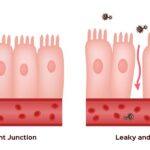The study involved a total of 30 overweight patients between 50-65 years old with complaints of mild cognitive decline.
Over a period of 12 weeks, the participants were asked to abstain from berry fruit consumption of any kind except for a daily packet of supplement powder to be mixed with water and consumed with breakfast.
Half of the participants received powders that contained the equivalent of one cup of whole strawberries (the standard serving size), while the other half received a placebo.
The participants were given tests that measured certain cognitive abilities like long-term memory.The researchers also tracked their mood, intensity of depressive symptoms and metabolic data over the course of the study.
Those in the strawberry powder group had diminished memory interference, which is consistent with an overall improvement in executive ability.
The strawberry-treated participants also had a significant reduction of depressive symptoms, which can be understood as a result from enhanced executive ability that would provide better emotional control and coping and perhaps better problem-solving.”
“Other strawberry studies have found improvement in metabolic measures including lower insulin, but there was no effect found on the patients’ metabolic health in this study.”
“Those studies generally used higher dosages of strawberry powder than in our research, and this could have been a factor.”
-Robert Krikorian et al. 2023. Early Intervention in Cognitive Aging with Strawberry Supplementation. Nutrients 15 (20): 4431; doi: 10.3390/nu15204431
———————————
Stawberries May Help Fend Off Alzheimer’s
which began in 1997. There were a total of 575 deceased participants with complete dietary information during the follow-up and brain autopsies whose average age of death was 91.3 years. A total of 452 people were non-carriers of the APOE 4 gene and a total of 120 participants with APOE 4, which is the strongest genetic risk factor gene for Alzheimer’s disease. Participants were assessed about diet using a food frequency questionnaire for up to nearly 20 years of follow-up prior to death and standardized neuropathological evaluation after death.
During the course of the study, each person received annual, standardized testing for cognitive ability in five areas — episodic memory, working memory, semantic memory, visuospatial ability and perceptual speed.












